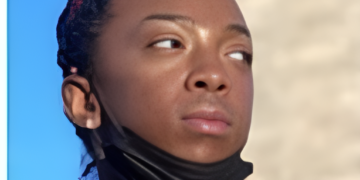Many Mississippians were left unable to schedule appointments to receive their first doses of the COVID-19 vaccine after thousands of requests flooded the system to arrange times for vaccination.
On Monday, an additional 20,000 first-dose appointments were loaded, but both Gov. Tate Reeves and State Health Officer Thomas Dobbs said these appointments — reserved for people over the age of 65 and those with medical conditions — may run out just as fast. As of Jan. 13, 52,000 residents have been scheduled to receive vaccines within the next two weeks, and there are no more available appointments for this month.
“We understand the frustration brought on by this sudden change of plans. We will certainly keep all Mississippians updated regarding additional vaccines,” the Mississippi State Department of Health (MSDH) said in a statement. “Mississippians should understand that we can only vaccinate residents based on vaccine availability. We will open additional vaccination appointments as we receive more vaccines.”
The MSDH said its website and its server was “not prepared for the surge of page visits” after its announcement of vaccine availability for Mississippians over 65 years old and younger people with underlying conditions on Tuesday, Jan. 12. Some callers waited hours on the COVID-19 vaccine hotline, only to be pushed back in line or to receive no appointment at all.
Gov. Tate Reeves pinned the rush on the wider scope of availability, adding that “restricting access” was a worse alternative than surging inquiries for appointments.
“In other states, vaccines are expiring because of a dogmatic attachment to ‘tiers’ and most residents have no hope of receiving a vaccine unless they are connected to an ‘essential business,’” Reeves said. “That’s wrong. Every life is essential, and we should give all a chance to get in line.”
After Wednesday’s scramble for appointments, the MSDH said there were no appointments left until February, but on Friday, Dobbs said that the anticipated February vaccine infusion is in addition to the weekly allocation that Mississippi receives.
On Friday, the MSDH announced a new shipment of vaccines, meant to support ongoing appointments at drive-thru sites and community partners. This “modest amount” is planned to increase available appointments and vaccination locations during the last week of January. On Sunday, Reeves celebrated the efforts of the rollout after Mississippi surpassed 100,000 first and second-dose vaccines given.
“The additional vaccine will be distributed to community partners in a manner that seeks to address both geographic and racial disparities,” the department said. “We anticipate that we will have additional drive through appointments, in more locations, the week of January 25 based on vaccine forecasted to be available at the end of next week.”
Though first doses will be widely unavailable in the coming week, those who have already received or are scheduled to receive their first dose of the vaccine will be able to schedule time to receive the second portion of the vaccine. For those who received the Pfizer vaccine, the second dose is due 21 days or after. For the Moderna vaccine, the second dose is due 28 days or after. Though there are enough second doses from each provider for every person who received a first dose, patients should not switch manufacturers for the second dose; if the first dose was Pfizer, the second dose should also be Pfizer.
So far, 109,354 people have been vaccinated in the state. Of those, 62% of patients were white, 14% were Black, 1% were Asian and 22% were labeled as “other.” Yesterday, the MSDH reported an additional 1,457 cases of COVID-19 in Mississippi and 3 deaths, putting Mississippi’s COVID-19 cases since Feb. 2020 at 253,932 cases, with 5,524 deaths. Dobbs said that January “will likely be the worst month for COVID deaths by far.”
In Lafayette County, 2,404 people have been vaccinated as of Jan. 18.
On Jan. 8, the university’s COVID-19 Vaccine Task Force met for the first time. The task force, a team of 14 members of the university community, was assembled in December to develop a strategy for campus immunization. Dr. Joshua Sharp, associate professor of pharmacology and member of the task force, wrote on Twitter that after the meeting, he was confident that “as soon as (the task force) gets vaccine from the state, we’ll be ready to put shots in arms within hours.”
Dr. Sharp also said pharmacy students will play a large role in distribution, but how was not specified. At the time of publication, members of the task force could not be reached for comment.



























